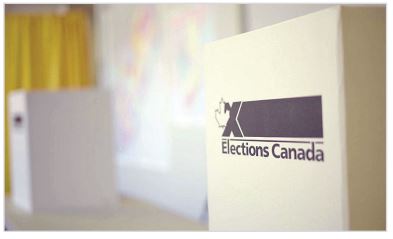Foreign political interference, public hearings starting
OTTAWA – Public hearings for the federal inquiry into foreign interference in Canadian elections and democratic institutions will begin this week. Commissioner Marie-Josee Hogue will begin chairing the first open phase of the national investigation, which was completed after a long journey and despite reluctance from the federal government.
The first phase of Hogue’s work will focus on “interferences in which China, Russia and other foreign actors may have been involved” during the last two elections, and will also dig into the flow of information within the federal government in relation to these alleged cases.
Documents will also be specifically requested from the federal government regarding India’s alleged interference in relation to the 2019 and 2021 elections.
Overall, the review will include evaluating the flow of information within the federal government, including communications between elected officials, the Task Force on Security and Intelligence Threats to Elections (SITE), and the Public Protocol Group on Critical electoral “incidents” of the last two federal elections.
Who knew what, who was alerted at the time and how the relevant federal security services handled these threats of interference have all been central questions in parliamentarians’ previous analyzes of this dossier.
The second phase of the public inquiry will focus on the federal government’s ability to “detect, deter and counter such interference,” with the aim of helping Canada sustain its democratic processes against future threats as the next election approaches federal.
The first set of public hearings will begin tomorrow in Ottawa with an opening statement from Hogue. The series of “preliminary” hearings will last five days: among the people on the list are professors expert in national security, the former director of CSIS Richard Fadden, the current director of CSIS David Vigneault, the deputy intelligence chief of the Communications Security Institute (CSE) Alia Tayyeb, Deputy National Security and Intelligence Advisor Dan Rogers, and Secretary of Public Safety, Democratic Institutions and Intergovernmental Affairs Dominic LeBlanc.
The commission will then pause in public hearings until March, when it will begin a second series of hearings examining alleged past election interference by various foreign states and non-state “actors.”
A third series of hearings, which are expected to relate to the second phase of the inquiry’s mandate, is expected to begin approximately in September 2024. After raising concerns about the shortened overall timeline that would require Hogue to submit an interim report by February 29, the commissioner was granted an extension until May 3. “The purpose of this postponement is to give meaning and purpose to the preliminary hearings and to allow additional time to maximize the transparency of the Commission’s work,” Hogue said.
The final report must be submitted to the government, in both official languages, by 31 December 2024.
Hogue will be accompanied on this journey by the commission’s lead counsel Shantona Chaudhury who was one of the co-consultants of the Public Order Emergencies Commission (POEC) which spent weeks questioning witnesses in open hearings on the invocation of the Emergencies’ Act. Also part of the “team” hired to conduct the investigation into foreign interference are senior political consultant Paul Cavalluzzo, who was the lead consultant on the investigation into the Maher Arar issue, and research consultant Genevieve Carter, who played a role similar during the Charbonneau Commission. Additionally, the public hearings will include “fact witnesses” and experts, as well as somewhat “fact-informed” politicians, such as Conservative MP Michael Chong, Liberal-turned-independent MP Han Dong, and former Conservative MP and former leader Erin O’Toole. A number of organizations representing Chinese, Russian, Ukrainian, Iranian and Indian diaspora groups will also play a role, as will a joint “media coalition” and a coalition of former intelligence officials.
The public has been invited to attend the commission’s preliminary hearings in person, but the proceedings will also be available via streaming on the inquiry’s website at https://foreigninterferencecommission.ca/public-hearings
Finally, the public will also be able to contribute by providing relevant information, observations, suggestions and experiences. In this context, the commission promised, if necessary, to put in place adequate identity protections. To transmit information in confidence, you can write by email to: conf@pifi-epie.gc.ca



